The transition cycle: Debates for a new economy
During the month of June, there will be a series of conferences with internationally renowned experts, involving the general public in the debate on the main socio-environmental crises we are facing as a society, mainly due to the current economic model, as well as the transition we need to overcome them and place them at the centre of the cultural agenda, identifying local challenges and opportunities.
These sessions have various goals, so there are different moments planned for each one:
A conference open to all city residents in a public space to take the debate to the people and increase social knowledge about the global crisis and the need for new values and lifestyles in order to tackle and ameliorate it.
A debate with local experts, municipal specialists and a small number of organisations, focusing the debate on the city of Barcelona and specifying the main challenges we face and how to tackle them.
The sessions:
NOTICE: Due to agenda issues, discussion with Saskia Sassen scheduled for 6/16 has been suspended
Kate Raworth – Doughnut Economics
Saturday 11 June, 11 am - 12 noon (Parc de la Barceloneta, as part of the “Get Moving for the Climate” festival)
Kate Raworth is an ecological economist and the creator of the Doughnut concept, which she develops in the book she published in 2017, translated into over 20 languages, “Doughnut Economics: Seven Ways to Think Like a 21st Century Economist” in which she proposes a new economic model: instead of seeking endless financial wealth, it aims to meet the needs of all people within the means of the living planet.
The Doughnut represents the space in which the economy must operate, by becoming socially fair (guaranteeing social minimums for all) and ecologically safe (without exceeding the ecological ceiling). As a concept, it has gained wide-ranging interest and support, from the UN General Assembly and Pope Francis to David Attenborough and Extinction Rebellion.
Kate has taught at Oxford University and is co-founder of Doughnut Economics Action Lab.
Report (PDF)
Josep Maria Antó - Planetary health
Monday 20 June, 6 pm - 7 pm (Institute of Catalan Studies)
Senior Researcher and Former Scientific Director of ISGlobal and Medicine Professor at UPF-Hospital del Mar.
Since 2016, he has led a strategy for Planetary Health at both ISGlobal and the UPF, in order for this new concept to be internationally disseminated and adopted. He is co-director of the UOC-UPF-ISGlobal inter-university Planetary Health Masters, which was launched in 2021. He is currently the co-president of the European platform Lancet Countdown on Health and Climate Change.
Planetary health has recently emerged as a new knowledge area, focused on the characterisation the interrelation between human health and Earth’s natural systems health severely affected by anthropogenic causes, impacts of the disruption of the Earth’s natural systems due to anthropogenic causes, as well as in the translation of knowledge into political, economic and social responses that have co-benefits for human health and Planet health.
Report (PDF)
Giorgos Kallis - Culture of limits
Wednesday 22 June, 6 pm - 7 pm (Institute of Catalan Studies)
A degree in Chemistry and a Masters in Environmental Engineering from Imperial College, a PhD in Environmental Policy from the University of the Aegean, and a second Masters in Economics from the Barcelona Graduate School of Economics. He is a professor at ICREA, where he teaches classes on Ecological Economics and Ecological Policy and Degrowth.
In his book “Limits. Why Malthus Was Wrong and Why Environmentalists Should Care”, he defends limits, coming out against the fantasy of modern societies with unlimited expansion. He rejects the notion of limits as scarcity and defends self-limitation as a freedom.
Report (PDF)
The city portrait workshops
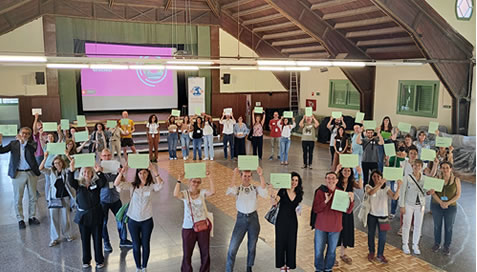
Participatory session on community portrait
On Thursday 26 May 2022, we did an onsite participatory workshop with organisations, companies and city residents to carry out a community portrait for Barcelona.
*This tool aims to compile the general public’s perception of how prosperous the place they live in is through participatory work sessions which endeavour to respond to questions posed by each of the four lenses. This analysis aims to determine:
what living inside the Doughnut means to the various urban stakeholders, taking into account the four lenses;
which of these aspirations have been achieved, which have not and the main reasons for this;
the opportunities and shortcomings that the place they live in offer, in terms of being inside the Doughnut, as well as how they are interrelated.
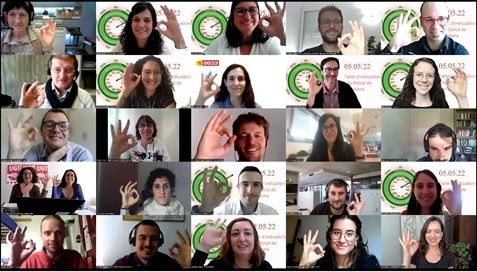
Participatory session on a portrait of indicators
On Thursday 5 May 2022, we did an online participatory workshop with experts on indicators to achieve an agreed portrait* of indicators for Barcelona.
*This tool involves having indicators that make it possible to assess the aspects that describe each of the four lenses, while also determining the value that they should have in order to reposition ourselves within the Doughnut, i.e. that we do not exceed the ecological ceiling nor fall below the social minimums.

The portrait of indicators is a joint representation of the distance between our current value and the desired value for repositioning inside the Doughnut, in terms of the local and global socio-economic and environmental indicators.
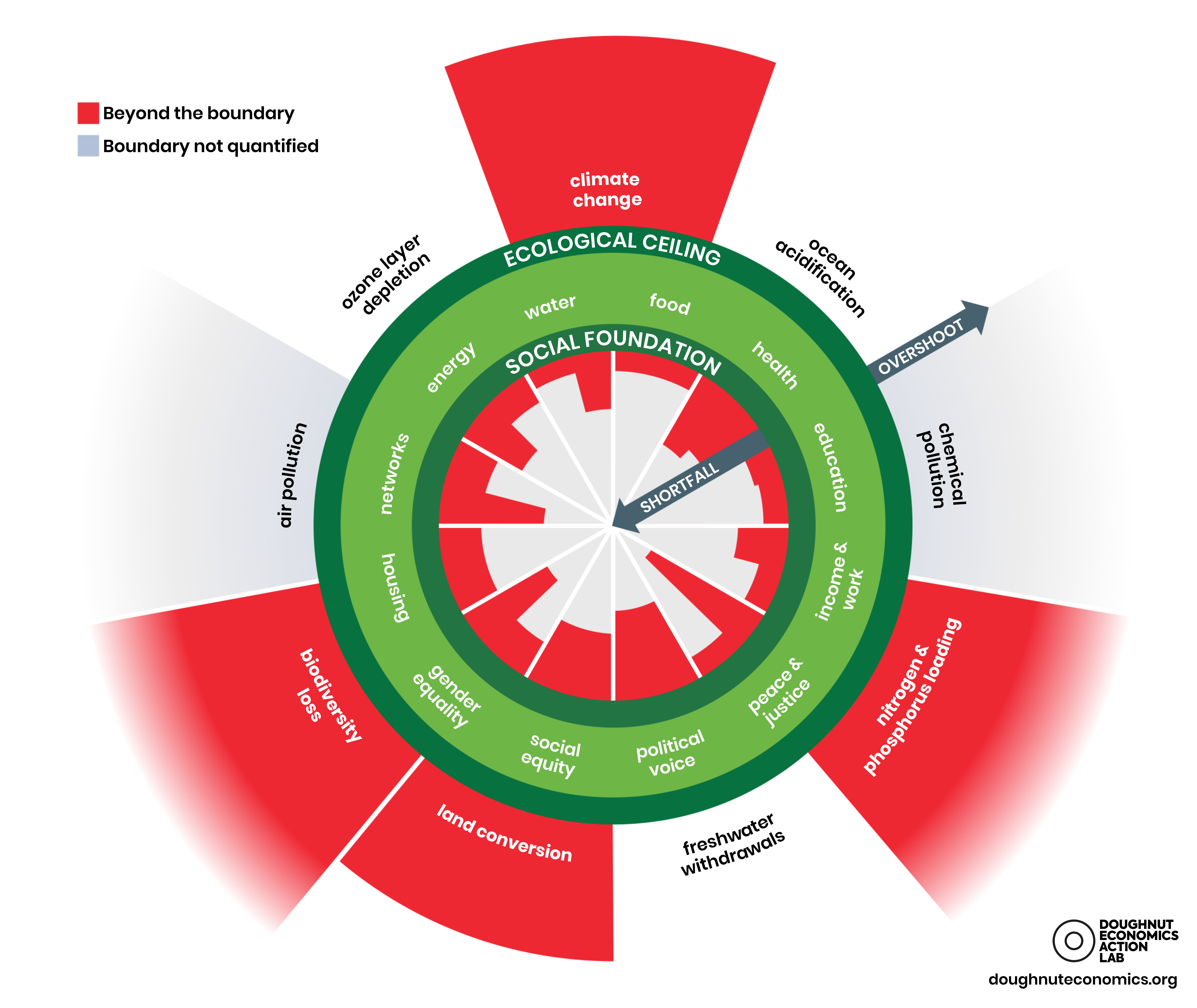
This tool enables us:
- to recognise to what degree the city has achieved the established goals for being inside the Doughnut
- he direction that should be taken
- to evaluate this transition based on the continual monitoring of those indicators
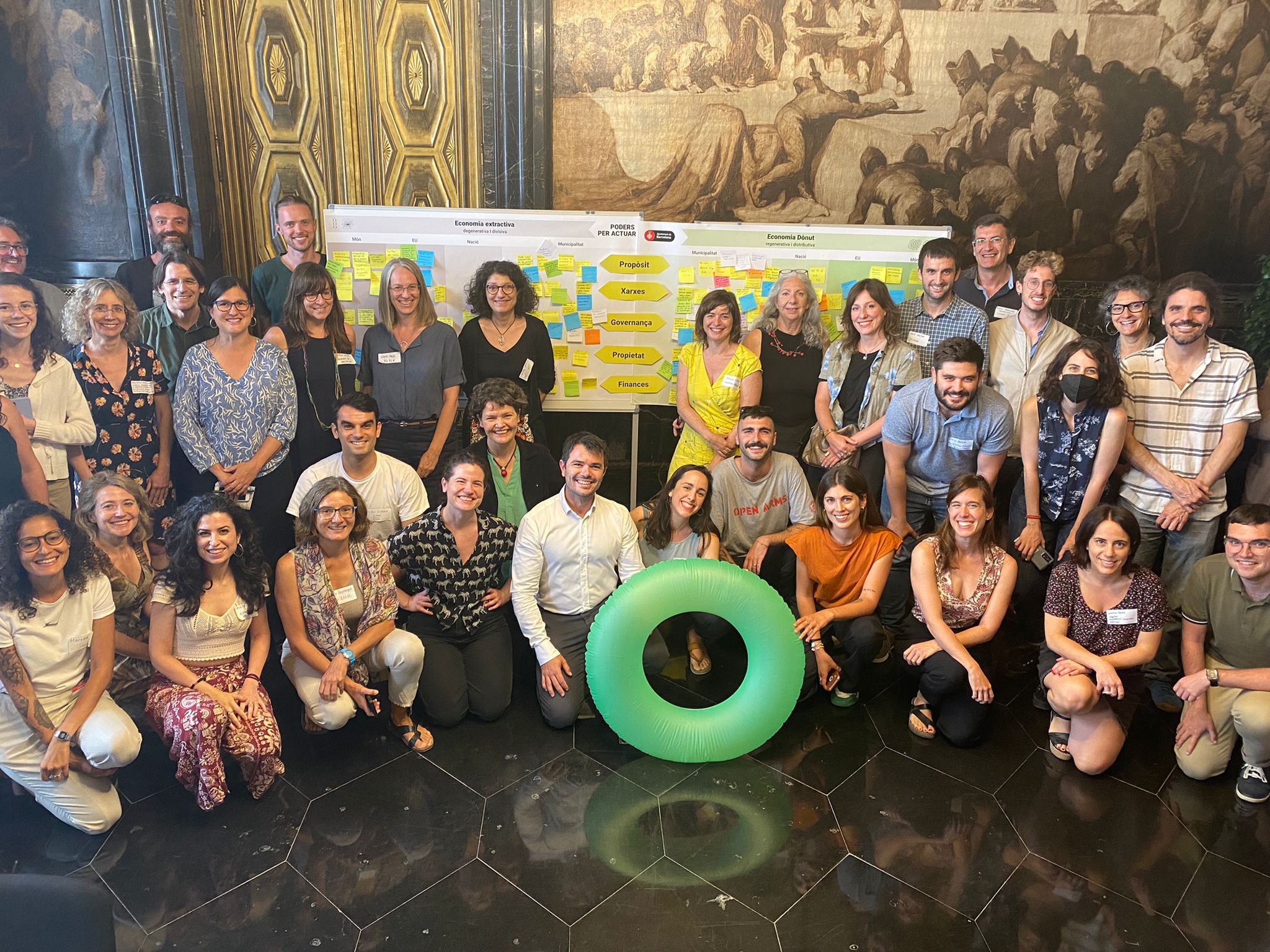
Participatory session on levers for change
On Friday 10 June 2022, we held an on-site participatory workshop run by Kate Raworth, in order to reflect on the levers for changing from our current economic model towards an economic doughnut model.
How can we turn Barcelona into a city that lives inside the doughnut, with a regenerative and distributive economy which responds to the needs of its residents, respecting the well-being of everyone and the health of the planet? In this workshop, a varied group of city stakeholders (business and political organisations, civil servants, trade unions, environmental and social organisations, etc.) explored how to transform the design of institutions throughout the city in order to move away from the degenerative and divisive economic system that is holding the city back, as well as celebrating and amplifying what is already providing impetus for the city to move forward with regenerative and distributive practices. The participants reflected on the city's power to act, through five basic design traits: purpose, networks, governance, ownership and finance, while also taking into account the widest possible territorial context of Barcelona and recognising the unique and diverse contributions that the various organisations can make in order to create transformative actions.
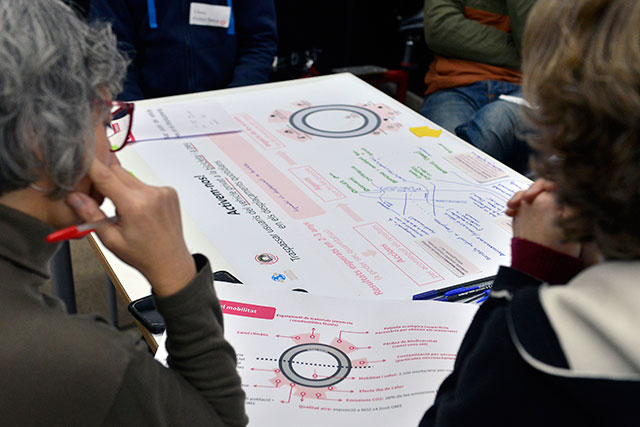
Participatory session on projects concerning sustainability
On Tuesdays, November 8 and 29, 2022, we held two on-site workshops to start defining the community projects in which the B+S network entities will work on in the coming years, to face the main challenges arisen from the Donut economy work process.

